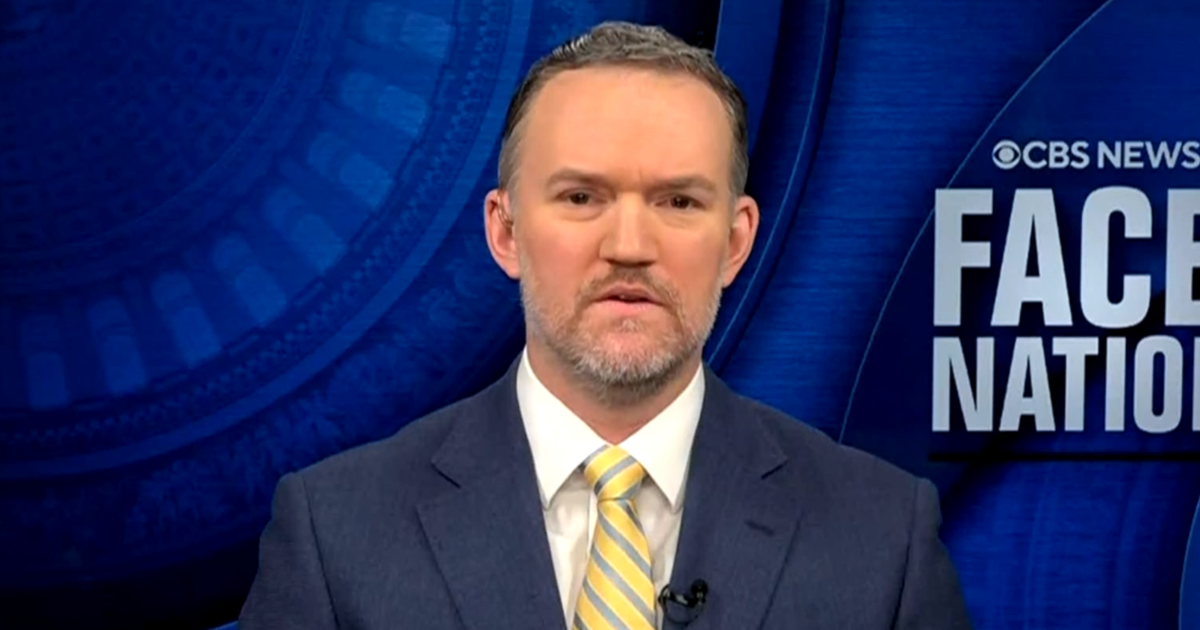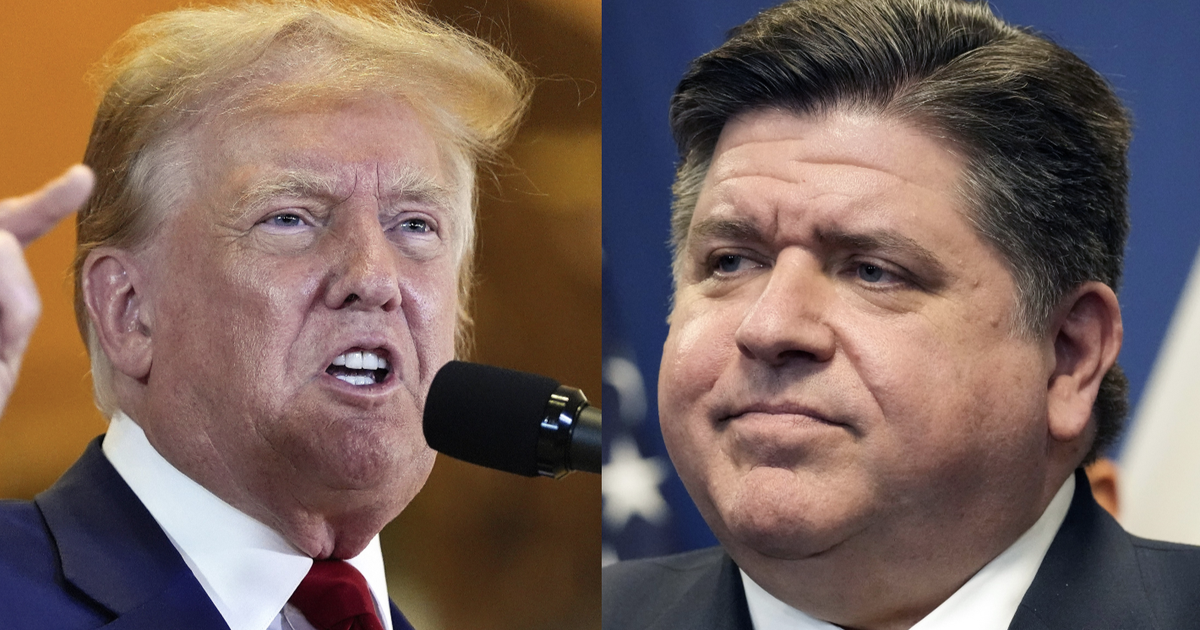Transcript: Governor J.B. Pritzker discusses coronavirus on "Face the Nation," May 3, 2020
The following is a transcript of an interview with Illinois Governor J.B. Pritzker that aired Sunday, May 3, 2020, on "Face the Nation."
MARGARET BRENNAN: We go now to Chicago, Illinois, and Governor J.B. Pritzker. Last week, he extended the state's stay-at-home order until the end of May. Good morning to you, Governor.
GOVERNOR J.B. PRITZKER: Good morning.
MARGARET BRENNAN: Why is the number of hospitalizations in your state still increasing?
GOV. PRITZKER: Well, it's increasing barely, it's true. But we have really bent the curve significantly. We're not through this yet. There's no doubt. And we've been looking to see those numbers flatten. We are seeing them flatten now. My great concern at this point is that we make sure we've got our contact tracing up and running. We have increased testing significantly. So we are getting ready for a point where we can begin to reopen the economy.
MARGARET BRENNAN: But there's some pressure on you. I mean, you had the mayor of Chicago say that residents aren't abiding by these calls to stay at home. You've had protests in Chicago, in southern Illinois as well. Is the politics of this complicating things for you?
GOV. PRITZKER: Not at all. I'm not thinking about the politics. I'm thinking about saving lives and keeping people healthy in our state. The fact is that there is- there are millions of people in the state of Illinois who have been following our stay-at-home rule, and they are the ones who have bent this curve for us. It is true there are outliers. The mayor and I have talked several times about the challenge of people wanting to break the rules. But the truth is those are real outliers. And even the protesters, there were only a few hundred protesters. And although, you know, they sometimes carry reprehensible signs and, you know, are attacking what we're trying to do, we're still trying to keep them healthy as we are the 12.7 million Illinoisans across the state.
MARGARET BRENNAN: The presidential adviser, Jared Kushner, gave an interview this week. You heard a clip of it in the beginning of the show. And he said the country is on the medical aspect side of this improving and that the federal government rose to the challenge. Did the federal government rise to the challenge and meet your state's needs?
GOV. PRITZKER: Well, it's the governors that have risen to the challenge, you know, I talked to my fellow governors, Republicans and Democrats, we've shared ideas with one another about how to keep people safe. We've gotten some guidance from the CDC that's been helpful. But much of what came out of the White House for many weeks was not helpful. We needed the White House to lead on the Defense Production Act to help us get swabs, to help us get VTM, to help us get reagents. That really hasn't much happened, although recently we got a call from the White House telling us that in May they're sending us 600,000 swabs, and I'm very grateful for that. We've, of course, overcome our challenges more recently and increased testing significantly. We're now among the top 10 states in- in America, we're number two for testing. We've got to get our contact tracing up and going. And then, as I say, we can reopen the economy as we see our hospitalizations begin to wane.
MARGARET BRENNAN: So do you agree then with Kushner when he says the biggest thing holding testing back is the state's ability to collect more samples?
GOV. PRITZKER: You know, a couple of weeks ago or maybe a week ago, the White House said that we have all the capacity we need. Well, they're right in the sense that there are plenty of machines that exist in the state of Illinois. But there weren't enough swabs, VTM and reagent. There still aren't. But the White House is helping, and I appreciate that--
MARGARET BRENNAN: Is it enough?
GOV. PRITZKER: But re- it's not enough. It's not enough today. But again, as a state, we're having to go out in the market and compete with every other state to get swabs and VTM and reagents. I wish that the White House had stepped up earlier, and I think they still have the opportunity to do so when it comes to reagent. But the fact is that we're going to overcome this. I believe by mid summer we'll be able to do tens of thousands more tests. And just, again, in May, we'll be able to do more than we're doing today, which is in the high teens.
MARGARET BRENNAN: Governor, you know, I- I know that you have said and other governors have said that they will need more federal aid because of this crisis. But I want you to respond to- to this because before the crisis, Illinois had one of the worst pension problems in the country. By your state's own admission, the pensions were underfunded by $129 billion in 2019. Citing numbers like this, Republicans have characterized any emergency help now as essentially a bailout of- of poor management. I mean, the president slammed you this week in a presser as well. Is- is it reasonable for Congress if they put together the emergency aid you're asking for to attach strings that restrict how you spend it?
GOV. PRITZKER: Well, let's point out that- that all 50 states are suffering from a failure of revenues to come in over the last couple of months. Coronavirus has caused that. All of us are having to spend more on social services and health care to take care of people. And as far as Illinois goes, we balanced the budget this year. We were on our way to a balanced budget for next year as well. So all we've asked for, and frankly the other 49 states too, as far as I know, is just help to replace those revenues that we all lost--
MARGARET BRENNAN: You--
GOV. PRITZKER: --as a result of this invisible killer.
MARGARET BRENNAN: So- so do you think you'll get the money and will there be strings attached?
GOV. PRITZKER: I don't know whether there'll be strings attached. I hope there aren't too many, because the fact is every state has a problem and it's different in every state where they need to put the dollars. So putting more strings on it makes it much more difficult for us to move forward to get our economies going.
MARGARET BRENNAN: Right.
Gov. PRITZKER: Remember, Illinois has one of the most important economies in the world, not to mention in the nation.
MARGARET BRENNAN: Certainly.
GOV. PRITZKER: So the federal government is really the only entity that can step in and help us out.
MARGARET BRENNAN: We'll be watching that, Governor. Good luck to you.
GOV. PRITZKER: Thank you.



